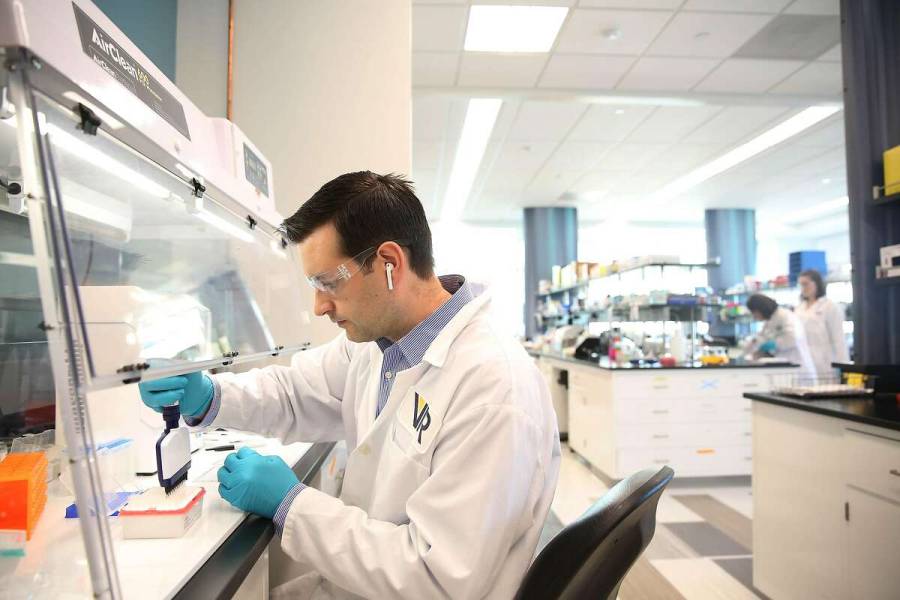Biotechnology is being revolutionized across the world, and the impact of the pandemic has only led to the acceleration of growth and innovation in its applications. With industry projections expecting to hit the $150 billion threshold by 2025, biotech has been growing steadily.
The scale at which labs have been operating and the volumes of assay developments require some form of automation and innovation in order to simply even meet completion indicators. It’s essential now more than ever before to keep up with biotech trends as they can have a significant effect on your business and overall output.
Ingenuous approaches to solving problems and increasing operational efficiency are the baseline for hopping onto the growth train. To give your laboratory and workflow some well-needed upgrades, here are some of the latest innovations that every growing business needs in order to keep up with the competition.
Temperature Mapping Tools
For facilities that handle temperature-sensitive biological compounds, temperature mapping is not just a standard for GxP compliance, but also a mandatory step in the accreditation process. It’s a complex and highly sensitive, multi-dimensional procedure that assists in quality control and asset protection.
Because of how strict temperature mapping requirements are and how it is a core component in maintaining your facility’s security and product management, investing in a dedicated temperature mapping tool is essential. Temperature mapping tools automate complex mapping systems spread across several sensors all over one or even multiple facilities.
Not only will you be able to collect highly accurate data from exact time periods according to your needs, but this data can also be automatically processed and formatted for interpretation. In turn, you’ll be better equipped to work at peak efficiency when collating this essential data.
Automatic Contactless Protein Purification For Plates
Incorrect and insufficient cleansing of cell-culture plates has always been an inconvenient source of cross-contamination that can result in high coefficients of variation. To avoid this form of carry-over caused by pipette tips, the technology of automated protein purification was developed through contactless plate washers.
These plate washers make protein purification and assay development much easier through contactless washing and liquid dispensing with the help of centrifugal forces. They are also much more efficient both in the short-term and in the long-term, guaranteeing thorough cleansing within seconds.
This purification also makes the reproducibility of results much more viable reproducibility of results and reduces project timelines. It’s also essential in DNA purification environments that are required to meet NGS library preparation standards.
Personalized Medication
Personalized medicine is also known as precision medicine. This is a method by which an individual’s genetic makeup is studied by doctors to create treatment plans and medication tailored to their unique needs.
In the past, personalized medicine was a highly expensive emergency measure that was only reserved for the more affluent. Now, thanks to the advancements made in genome sequencing, patients can now buy at-home genome sequencing tests at affordable costs, making this healthcare luxury accessible to all.
With personalized medicine now readily available, it will be much easier for everyone to not only receive the most effective treatment for their ailments, but it is also a better method for the prevention of diseases. By understanding an individual’s genetic profile, it becomes much easier for doctors to figure out risk factors and design methods to improve their quality of life.
Artificial Intelligence For Automation
Artificial intelligence has quickly turned into a second brain for all kinds of facilities. It doesn’t require basically any effort to set up and complete an array of tasks without requiring any level of manual input from the host’s side. The field of medicine and healthcare isn’t far behind in terms of using the currently available AI tech to its full potential.
AI tools are effective in all spheres of healthcare. Whether it’s dealing with patients and assisting them, or in biotech where automation is a must for precision in terms of research and mass-development of products. Any task that needs to be repeated or follows a pattern that machine learning can comprehend can be accomplished by AI to varying degrees, and in the future, we’ll only be seeing more mind-blowing feats of artificial intelligence.
Biotechnology is swiftly changing with each passing day, and keeping up with newly emerging innovations is the best way to move forward instead of remaining stagnated as a business. No doubt, it’s setting the standard for the future of many industries, ranging from healthcare to research – and everything else in between.
HedgeThink.com is the fund industry’s leading news, research and analysis source for individual and institutional accredited investors and professionals






































